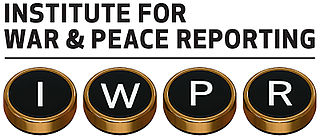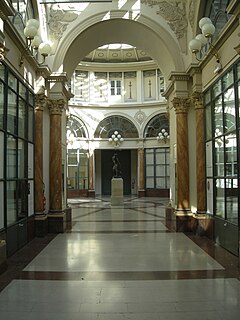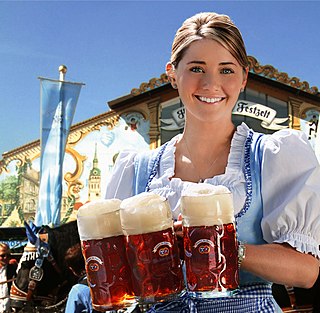
Algeria, officially the People's Democratic Republic of Algeria, is a country in the Maghreb region of North Africa. The capital and most populous city is Algiers, located in the far north of the country on the Mediterranean coast. With an area of 2,381,741 square kilometres (919,595 sq mi), Algeria is the tenth-largest country in the world, the world's largest Arab country, and the largest in Africa. Algeria is bordered to the northeast by Tunisia, to the east by Libya, to the west by Morocco, to the southwest by the Western Saharan territory, Mauritania, and Mali, to the southeast by Niger, and to the north by the Mediterranean Sea. The country is a semi-presidential republic consisting of 48 provinces and 1,541 communes (counties). It has the highest human development index of all non-island African countries.

The Levant is an approximate historical geographical term referring to a large area in the Eastern Mediterranean, primarily in Western Asia. In its narrowest sense, it is equivalent to the historical region of Syria. In its widest historical sense, the Levant included all of the eastern Mediterranean with its islands; that is, it included all of the countries along the Eastern Mediterranean shores, extending from Greece to Cyrenaica.

Institute for War & Peace Reporting is an independent not-for profit organisation that works with media and civil society to promote positive change in conflict zones, closed societies and countries in transition around the world. It has coordinating offices in the United States and the Netherlands, and a global headquarters in London. IWPR supports local reporters, citizen journalists and civil society activists in countries in conflict, crisis and transition around the world. It trains, mentors and provides platforms for professional and citizen reporters; builds up the institutional capacity of media and civic groups; and works with partners to remove barriers to free expression, robust public debate and citizen engagement. IWPR works on the ground in more than 30 countries and runs programmes in, among other places, Afghanistan, the Caucasus, Central Asia, Iraq, the Balkans, Sudan, and Uganda.

CIDOB, acronym of the Barcelona Centre for International Affairs, is a Spanish think-tank based in Barcelona, Catalonia, Spain, dedicated to research and divulge contents of the different areas of international relations and development studies. The centre defines itself as an organisation that is «an independent, non partisan centre that contributes to ongoing international debates from the perspective of a major Mediterranean metropolis». Legally speaking, CIDOB is a public foundation with a Board of Trustees that includes among its members the main political institutions and universities of Catalonia and Barcelona, in addition to a number of ministries of the Spanish Government. CIDOB is currently the oldest think-tank in Spain, and one of the most influential in its field, so they claim.
The European Union-Mediterranean Free Trade Area, also called the Euro-Mediterranean Free Trade Area or Euromed FTA, is based on the Barcelona Process and European Neighbourhood Policy (ENP). The Barcelona Process, developed after the Barcelona Conference in successive annual meetings, is a set of goals designed to lead to a free trade area in the Mediterranean Region and the Middle East by 2010.

European Heritage Days (EHD) is a joint action of the Council of Europe and the European Commission involving all 50 signatory states of the European Cultural Convention under the motto, Europe: a common heritage. The annual programme offers opportunities to visit buildings, monuments and sites, many of which are not normally accessible to the public. It aims to widen access and foster care for architectural and environmental heritage. These events are also known as Doors Open Days and Open Doors Days in English-speaking countries.

Arab cinema or Arabic cinema, refers to the cinema of the Arab world.

The cinema of Morocco dates back to "The Moroccan Goatherd" by Louis Lumière in 1897.

The following outline is provided as an overview of and topical guide to Syria:
The Euro Mediterranean Partnership of Local and Regional Authorities (COPPEM), was created in 2000 to promote dialogue and development between local and regional authorities in the Euro-Mediterranean area.

The EASE journal European Science Editing (ESE) publishes articles covering all aspects of scientific editing and publishing. It includes research articles, meeting reports, essays and viewpoints, book and website reviews, as well as highlighting events, resources and publications of interest to members. An informative and entertaining read, it helps editors keep up to date with major issues that are relevant to them.

The Anna Lindh Euro-Mediterranean Foundation for the Dialogue Between Cultures is a network of civil society organisations dedicated to promoting intercultural dialogue in the Mediterranean region.

The Union for the Mediterranean is an intergovernmental organization of 43 member states from Europe and the Mediterranean Basin: the 28 EU member states and 15 Mediterranean partner countries from North Africa, Western Asia and Southern Europe. It was founded on 13 July 2008 at the Paris Summit for the Mediterranean, with an aim of reinforcing the Euro-Mediterranean Partnership (Euromed) that was set up in 1995 as the Barcelona Process. Its general secretariat is located in Barcelona, Spain.
Rachida Triki is a philosopher, art historian, and art curator, currently full Professor of Philosophy at Tunis University specialized in Aesthetics.
The Euromed Heritage programme was a programme (1998-2013) chartered by the Barcelona Declaration and funded through the resulting Euro-Mediterranean Partnership. Its purpose was to foster regional inter-cultural dialogue between the member states of the Mediterranean, through collaboration on the preservation of cultural heritages.
Cinema of Algeria refers to the film industry based in the north African country of Algeria.
The Coordinating Committee for the Refoundation of the Fourth International (CRFI) is a Trotskyist international organisation. Its name in Spanish is Coordinadora por la Refundación de la Cuarta Internacional. It was formed in 2004 at a conference in Buenos Aires called by the Movement for the Refoundation of the Fourth International. It has members in South America, Western Europe and the Middle East. The committee has nine members from Argentina, Chile, Greece, Italy, Mexico, Uruguay, Turkey, Finland and Venezuela. They include Jorge Altamira, Savas Mihail Matsas, Sungur Savran and Marco Ferrando.
Bahia Al Mardini is a Syrian Kurdish Researcher in International Law, MA degree Northampton University in England, writer and journalist.

French national institute of cultural heritage, called Institut national du patrimoine (Inp), is the only academy in France in charge of the training of both curators and conservators. It belongs to French Ministry of Culture and is organized in 2 departments.



















